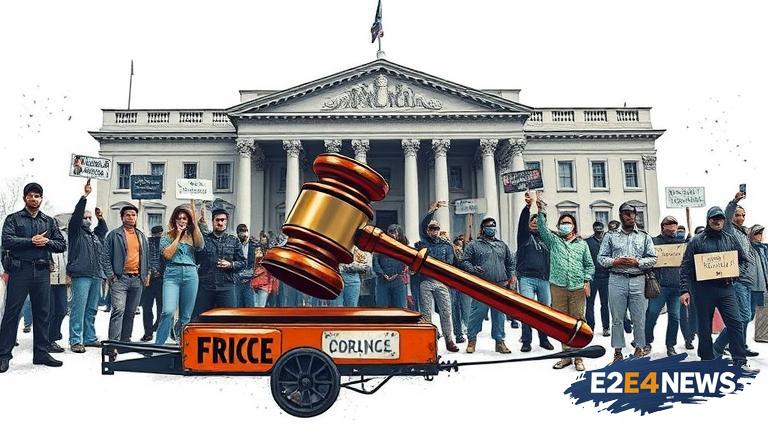A recent federal lawsuit has brought attention to the complex and often contentious issue of immigration and free speech in the United States. The case centers around an individual who was ordered to be deported after speaking out publicly about their immigration status and criticizing the US government’s handling of asylum cases. The plaintiff claims that the deportation order was issued in direct retaliation for their exercise of free speech, which is protected under the First Amendment of the US Constitution. This lawsuit has sparked a national debate about the limits of free speech for immigrants and the potential consequences of speaking out against government policies. The case has also raised concerns about the use of deportation as a tool for silencing dissenting voices. The plaintiff’s lawyers argue that the government’s actions are a clear example of a chilling effect, where individuals are deterred from speaking out due to fear of reprisal. The lawsuit alleges that the government’s actions violate the plaintiff’s constitutional rights and seeks to have the deportation order overturned. The case is being closely watched by civil liberties groups and immigration advocates, who see it as a critical test of the boundaries of free speech in the context of immigration policy. The US government has not commented on the specifics of the case, but has stated that it is committed to upholding the law and protecting national security. The lawsuit is the latest development in a long-running debate about the intersection of immigration and free speech in the United States. The case has implications that extend far beyond the individual plaintiff, and could potentially impact the lives of millions of immigrants living in the US. The outcome of the lawsuit is uncertain, but it is clear that it will have significant consequences for the future of free speech and immigration policy in the US. The case is a reminder that the right to free speech is fundamental to a healthy democracy, and that it must be protected and defended for all individuals, regardless of their immigration status. The lawsuit has also highlighted the need for greater transparency and accountability in the US immigration system, which is often criticized for being opaque and arbitrary. As the case moves forward, it is likely to continue to generate significant attention and controversy, and will be closely watched by scholars, advocates, and policymakers. The plaintiff’s courage in speaking out and challenging the government’s actions has inspired many, and has highlighted the importance of standing up for one’s rights and freedoms, even in the face of adversity.
